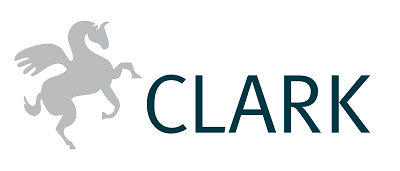
Expectations and arrangements regarding how people work are changing.
Hybrid work yields high employee engagement.
A significant workforce survey taken along five counties on the M7 corridor from a range of SMEs and multinationals has found that organisations are optimistic about future economic prospects. 93% of respondents were optimistic or neutral about the wider economic climate, and 76% reported that they expect some form of growth in their organisation.
Companies surveyed across Kildare, West Dublin, Carlow, Laois and Kilkenny are preparing for this growth on the back of existing skill shortages in their teams. 31% of respondents do not believe that their organisation has the talent needed to achieve their current objectives, and 63% described the skill shortages that they have experienced in the last year as extreme or moderate.
The impacts of these shortages are clearly called out in the survey findings, with 39% reporting that those skills shortages limit organisational productivity on an ongoing basis, directly impacting staff morale, increased stress for leaders, a reduced ability to deliver projects, and limiting the opportunities for productivity and innovation according to the survey by recruitment and HR consultancy firm Clark with the collaboration of Maynooth University, County Kildare Chamber and Grant Thornton. Companies surveyed ranged from small and large SMEs to multinationals across over 14 sectors including pharma, medtech, food/beverage, agri, IT, professional services, engineering, logistics, FMCG, manufacturing, construction, financial services and hotel-leisure.
Employers surveyed are concerned about the hiring challenges ahead, with a shortage of suitable candidates, competition from other employers, and rising salary costs quoted as their top three concerns. 63% of respondents reported that they intend to increase salaries in the next year, and this coupled with rising energy, transport, and material costs, will certainly raise some difficult challenges for organisations in managing their cost base.
Further findings from the survey which was conducted in January 2022 showed that expectations and arrangements regarding how people work are changing. The prolonged experience of remote and hybrid work has altered expectations. Individual preferences, along with the government’s commitment to legislate employees’ right to request remote work, means creating mutually productive and satisfying hybrid work arrangements will be a pertinent issue facing business leaders and HR professionals.
Interesting the scale of workplace change is captured very clearly in this year’s survey. 78% of organisations offer remote working and 81% of employees work remotely at least part of the time. Furthermore, only 26% of respondents report they would be satisfied with a full-time return to the office and 77% of organisations will offer some a form of remote working going forward. The momentum is certainly on the side of ongoing hybrid work arrangements.
The survey indicates that the most common longer-term, hybrid arrangements will facilitate remote working approximately 50% of the time. The positive experience of remote work, along with the potential to scale up the training and supports, points to potential of hybrid work to yield high employee engagement alongside time efficient, productive working arrangements.
Managing Director of Clark Deirdre Coghlan Murray said “With new models of working widely available, the increase in salary levels driven both by a rise in inflation and competition for a smaller pool of talent, the landscape for attracting and retaining people has certainly become a more complex one. Employers need to work very hard to both attract and retain their people.”
Andrew Webb, Director Advisory Chief Economist, Grant Thornton believes “While optimism indicators are displaying strong positive sentiment, new headwinds to the economic outlook are mounting. Labour market skills challenges have emerged as vacancies increased faster than expected. Supply chain bottlenecks have also emerged, causing volatility in the level and scale of consumer demand.”
Patrick Gallen, Partner, People & Change Consulting, Grant Thornton “Strongly articulated Employee Value Proposition (EVP) will be key in attracting and retaining talent. Aside from financial reward and other benefits, offering an employment proposition that includes training people in the skills they need to do their jobs well, offering evidence that your employees feel valued, are treated fairly for the job they do, and have opportunities to both work flexibly and to progress their careers, will be critical. This sounds simple, but getting it right can be very tricky, and done well it can provide a key competitive advantage for your organisation.”
Dr. Jean Cushen Associate Professor, HRM. Deputy Head of School, Accreditations, School of Business, Maynooth University highlights “The data points to hybrid work being both desirable and viable, and the positive experience of remote work occurred alongside reports of delivering an increased workload. Other studies indicate that the increased workload associated with remote work comes from the additional communications needed to gain clarity and drive remote collaborations. This opens up a wider, important discussion about the relationship between hybrid work and optimum time management and how we best utilise the time and energy we might have previously lost to commuting and other logistical demands.”
Allan Shine CEO of the County Kildare Chamber acknowledges that “skill shortages are a huge challenge for every sector. Most prevalent are the manufacturing, food, transportation, and tourism sectors. There is also a challenge for SME’s to retain staff with many leaving to join larger MNC’s attracted by better pay, work conditions, cultural diversity and a sustainable business model.”
